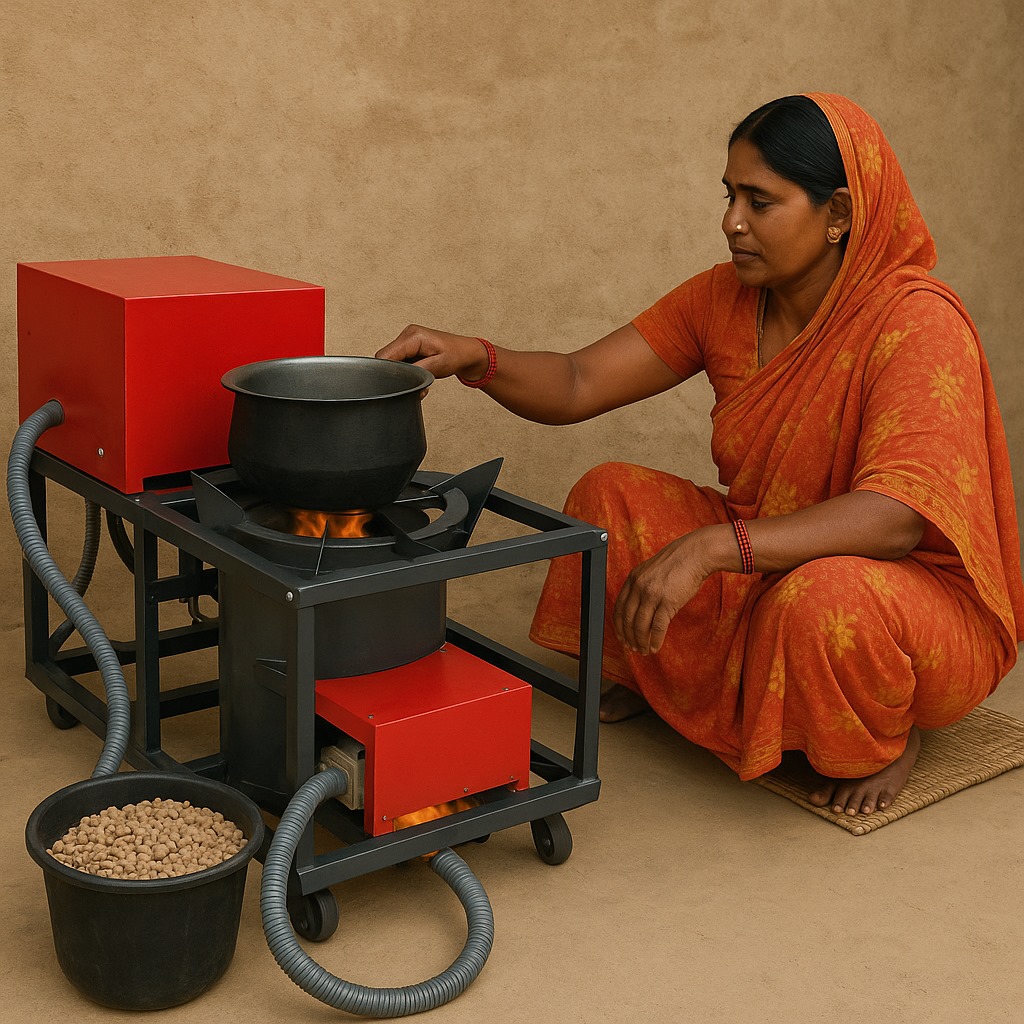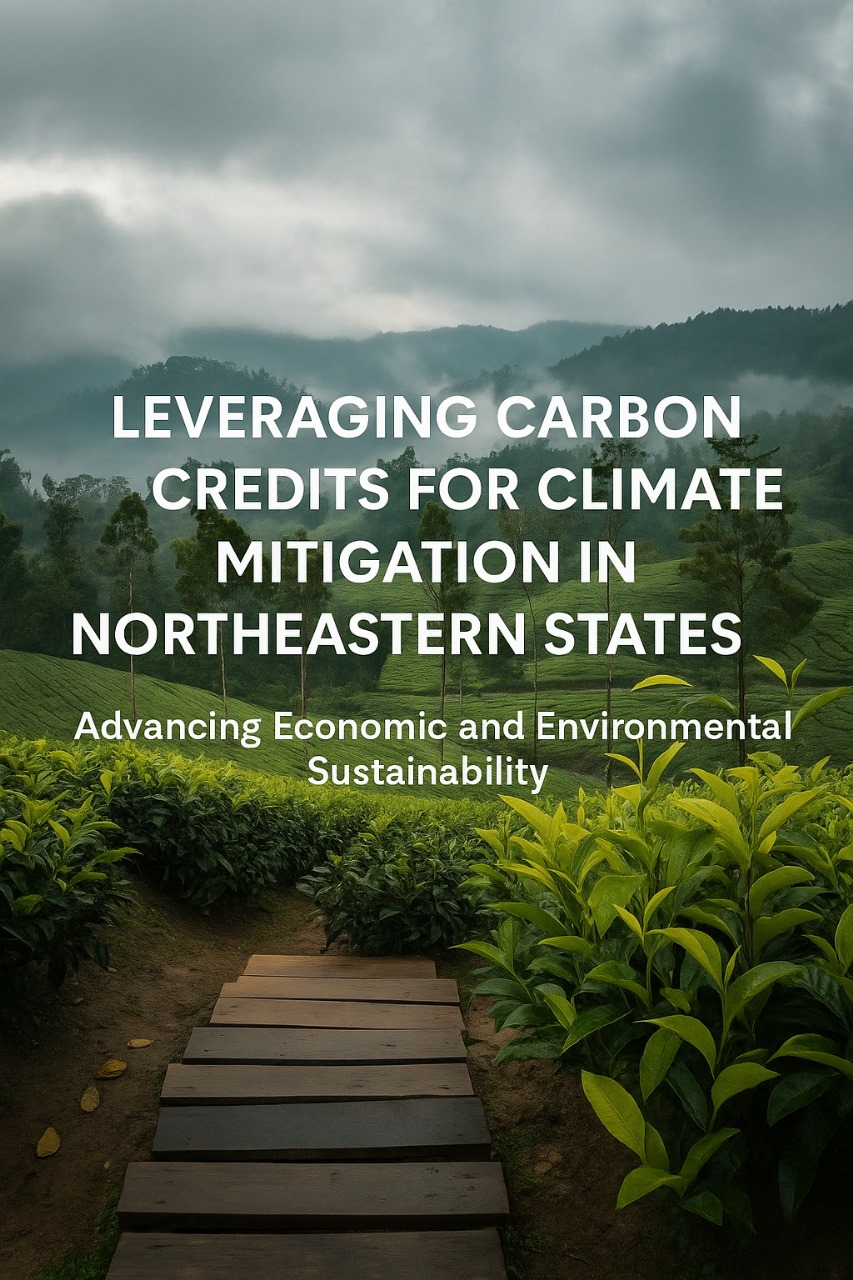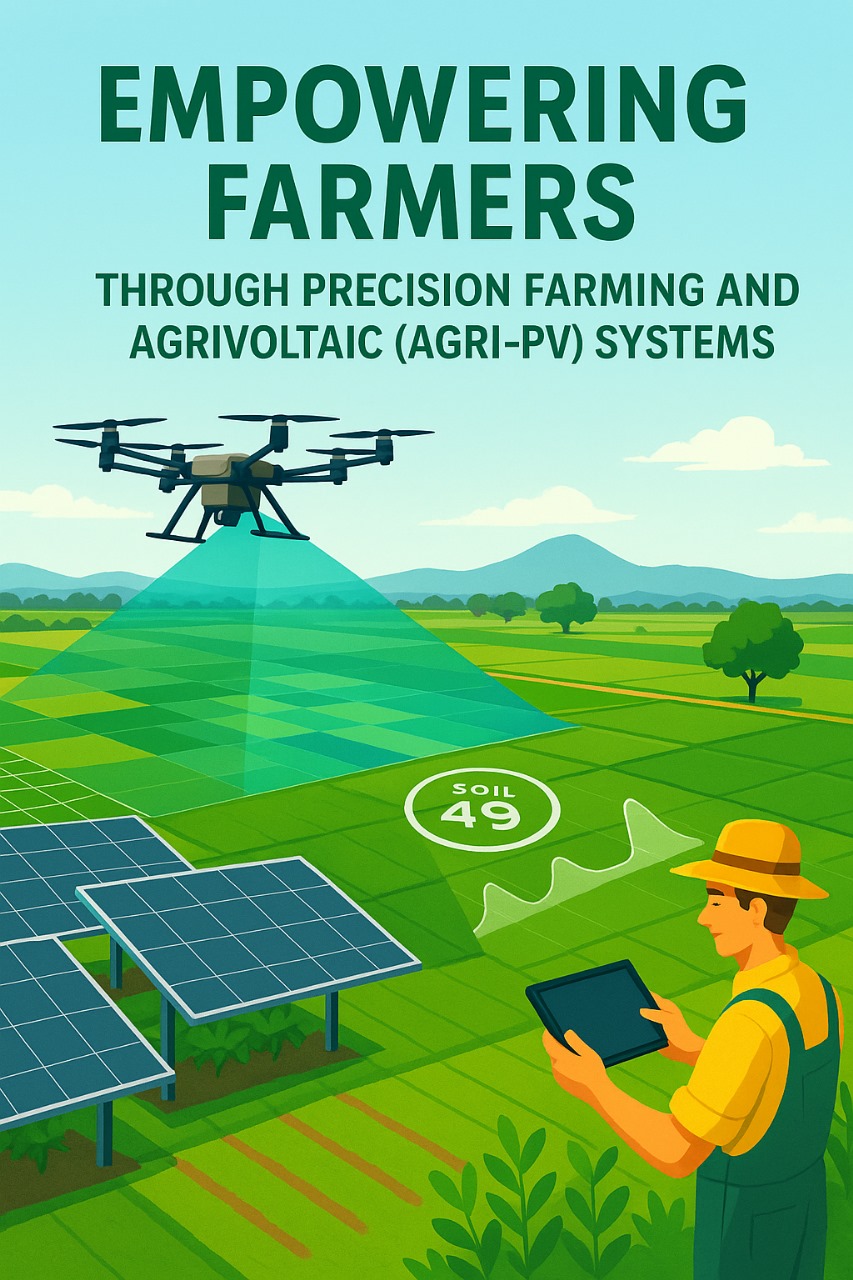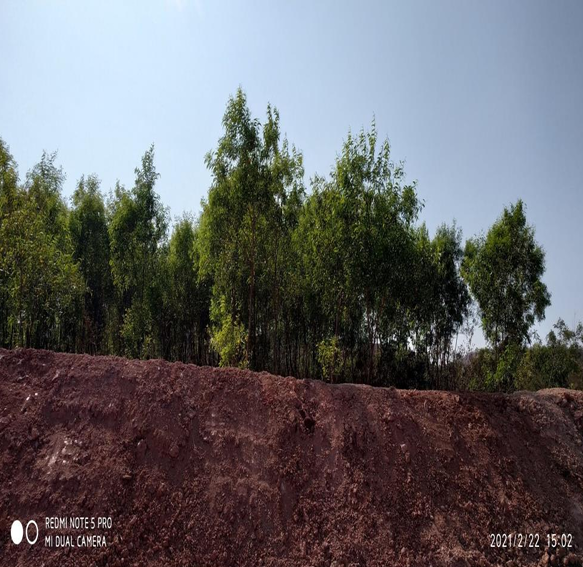Harnessing Environmental Sustainability and Clean Cooking with Bio-Pellet Smokeless Chullah
Flagship Initiative under Knowledge Center – Climate Resilient Agriculture, IIT Delhi
Project Brief
In a world where climate resilience and clean energy access are more crucial than ever, Ecoprenure, in collaboration with the Knowledge Center – Climate Resilient Agriculture, IIT Delhi, is proud to champion a transformative initiative: the Bio-Pellet Smokeless Chullah Project.
This project is more than just a technological intervention—it is a mission to bridge environmental sustainability with grassroots empowerment. Traditional cooking methods in rural India, particularly wood-burning chullahs, have long contributed to deforestation, indoor air pollution, and adverse health effects, especially for women and children. Recognizing these challenges, we are introducing Bio-Pellet Smokeless Chullahs as a sustainable, clean-cooking alternative.
These innovative chullahs are powered by bio-pellets made from agricultural waste—making them not only smokeless but also carbon-efficient and circular in their resource use. The technology significantly reduces indoor air pollution, lowers carbon emissions, and cuts reliance on firewood, offering a viable solution for communities vulnerable to climate change.
Key Features and Impact:
- Smokeless Cooking: Reduces harmful emissions, protecting the health of women and children.
- Eco-Friendly Fuel: Utilizes agricultural residues to create bio-pellets, preventing stubble burning and promoting waste-to-wealth models.
- Sustainable Livelihoods: Encourages local bio-pellet production units, creating income opportunities for rural youth and women SHGs.
- Carbon Credit Potential: Enables communities and local governments to tap into carbon financing markets.
- Farmer-Centric Model: Integrates with climate-resilient agricultural practices, building synergies between farming and clean energy.
This flagship initiative aligns with global climate goals, such as the Paris Agreement and India’s Nationally Determined Contributions (NDCs), while supporting rural development in a deeply impactful way.
Through this project, Ecoprenure continues its commitment to bringing scalable, inclusive, and climate-smart solutions to the forefront of sustainable development. Together, we are lighting the path—literally and figuratively—to a cleaner, greener future.
Leveraging Carbon Credits for Climate Mitigation in Northeastern States
Advancing Economic and Environmental Sustainability
Project Brief
In alignment with global climate action goals and India’s commitment to sustainable development, Ecopreneure is exploring the vast potential of carbon credits as part of a transformative climate mitigation strategy in the northeastern states of India. These states, blessed with rich biodiversity, lush forests, and unique ecosystems, are crucial in the battle against climate change. By embracing carbon credit mechanisms, the region can both combat environmental degradation and promote sustainable livelihoods.
Why the Northeastern States?
The northeastern states of India, including Assam, Meghalaya, Nagaland, Manipur, and others, are home to some of the country’s most pristine forests and valuable natural resources. However, these regions are also highly vulnerable to the impacts of climate change, including:
- Erratic rainfall patterns
- Flooding and droughts
- Loss of biodiversity
By integrating carbon credit generation into their development strategies, these states can create new revenue streams while contributing to global efforts to reduce greenhouse gas emissions.
Carbon Credits: A Gateway to Sustainable Development
Carbon credits are a critical tool for incentivizing sustainable practices in various sectors, including forestry, renewable energy, and agriculture. The northeastern states have a unique opportunity to tap into this global mechanism by:
- Forest Conservation and Afforestation: Protecting and expanding the region’s rich forest cover, which acts as a significant carbon sink.
- Sustainable Agriculture: Introducing climate-resilient agricultural practices that reduce emissions and promote soil health.
- Renewable Energy Projects: Implementing clean energy projects like solar, wind, and hydropower that not only contribute to clean energy production but also generate carbon credits for further environmental projects.
Through Carbon Credit Certification Programs (such as those managed by the UNFCCC or voluntary carbon markets), these states can access financial benefits that can be reinvested into community development, local businesses, and environmental protection.
The Dual Impact: Economic & Environmental Sustainability
By incorporating carbon credit strategies, Ecopreneure aims to achieve the following:
- Economic Growth: Generate revenue streams for local communities, smallholder farmers, and forest-dependent communities.
- Climate Mitigation: Help the northeastern states reduce their carbon footprint while contributing to India’s Nationally Determined Contributions (NDCs) under the Paris Agreement.
- Environmental Protection: Promote long-term ecosystem health by preserving forests and natural resources, supporting biodiversity, and reducing deforestation rates.
Join Us in Building a Carbon-Credit-Enabled Future
As Ecopreneure works with local stakeholders, government bodies, and community leaders, we invite partners from across the globe to support and scale this initiative. Together, we can create a sustainable future, one carbon credit at a time. Contact Us to learn more about how you can be a part of this impactful journey.
Integrating credit linkages and robust funding mechanisms with the development of precision farming technologies
Empowering Farmers through Precision Farming and Agrivoltaic (Agri-PV) Systems
Project BriefAt Ecoprenure, we are committed to transforming agriculture by integrating cutting-edge technologies and sustainable practices. Our projects focus on empowering farmers through Precision Farming and Agrivoltaic (Agri-PV) Systems, creating a new path towards agricultural sustainability, increased productivity, and resilience to climate change.
Precision Farming Technologies leverage the power of data, advanced sensors, and IoT to provide farmers with real-time insights on soil health, water usage, and crop conditions. By using precision irrigation, nutrient management systems, and weather forecasting tools, we help farmers optimize their resources, reduce input costs, and improve yields. These innovations not only ensure more efficient farming but also contribute to sustainable environmental practices by minimizing waste and enhancing soil health.
Our Agrivoltaic (Agri-PV) Systems integrate solar energy production with agricultural activities, creating a dual-use environment that boosts the efficiency of land use. By combining crop cultivation with solar power generation, farmers can simultaneously grow crops and produce renewable energy. This innovative system offers additional income streams while providing cleaner energy solutions for rural communities, contributing to a low-carbon economy.
Integrating Credit Linkages and Robust Funding Mechanisms
To support the widespread adoption of these technologies, Ecoprenure is also integrating credit linkages and robust funding mechanisms tailored to the needs of farmers and rural enterprises. Through partnerships with financial institutions, government programs, and impact investors, we aim to provide accessible financial support to implement precision farming and Agri-PV systems. This includes facilitating micro-loans, subsidies, and grants for farmers, ensuring they have the necessary resources to invest in advanced technologies that will drive productivity and sustainability in their agricultural practices.
Through our integrated approach, we are not only introducing technological advancements but also fostering an ecosystem of financial support that enables farmers to thrive in a rapidly evolving agricultural landscape. Our projects are designed to ensure that farmers not only have the tools they need but also the financial backing to make sustainable agricultural practices a reality.
Restoring Tropical Forests & Development of
Green Mines
Project Brief
At Ecoprenure, we are dedicated to advancing environmental sustainability through innovative projects focused on the restoration of tropical forests and the development of Green Mines. Our efforts are centered on the belief that responsible mining practices and reforestation can coexist, leading to ecological recovery, biodiversity conservation, and sustainable economic development.
Restoring Tropical Forests: A Path to Environmental Resilience
Our Tropical Forest Restoration projects aim to regenerate and conserve vital ecosystems in tropical regions, which are essential for combating climate change, preserving biodiversity, and maintaining global ecological health. By working alongside local communities and stakeholders, we employ scientifically-backed reforestation techniques to restore degraded lands and enhance the biodiversity of tropical forests.
We focus on:
- Native Species Reforestation: Planting indigenous trees to rebuild natural ecosystems and improve soil fertility, water retention, and carbon sequestration.
- Agroforestry Practices: Integrating sustainable agricultural practices with forest restoration, which benefits both local farmers and the environment by improving soil health and creating a diversified income stream for communities.
- Biodiversity Conservation: Protecting and promoting the restoration of habitats for endangered species, contributing to the long-term survival of ecosystems.
Through these efforts, we not only restore the tropical forest ecosystem but also empower local communities, providing them with the tools and resources to become active participants in environmental conservation and sustainable land use.
Development of Green Mines: Sustainable Mining for the Future
We believe that mining does not have to come at the expense of the environment. Ecoprenure is pioneering the development of Green Mines, a new approach to mining that integrates responsible practices to reduce environmental impact while maintaining economic viability. Our Green Mining projects focus on minimizing ecological damage and enhancing sustainability throughout the mining process—from exploration and extraction to rehabilitation and restoration.
Key aspects of our Green Mines projects include:
- Eco-Friendly Extraction Methods: Utilizing cutting-edge technologies to reduce waste, minimize water usage, and lower energy consumption during mining operations.
- Reclamation and Rehabilitation: After mining activities, we work to restore the land to its natural state, planting native vegetation, improving soil quality, and ensuring the land is safe for local communities and wildlife.
- Sustainable Supply Chain Practices: Encouraging the use of responsibly sourced materials, reducing the carbon footprint of mining operations, and ensuring that all practices align with sustainable development goals.
By blending Green Mining principles with Tropical Forest Restoration, we are not only transforming the mining industry but also ensuring that future generations benefit from a cleaner, healthier planet. Our projects focus on creating a harmonious balance between economic development, environmental preservation, and social responsibility.
At Ecoprenure, we are committed to driving ecological restoration and promoting sustainable mining practices that lead to lasting positive impacts on the environment, communities, and industries across the globe.






